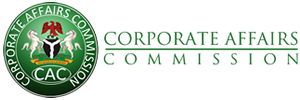KEYNOTE ADDRESS: SCIENCE AND SCIENCE POLICY FOR NATIONAL DEVELOPMENT
BY
PROFESSOR MOJISOLA CHRISTIANA ADEYEYE
DIRECTOR GENERAL, NATIONAL AGENCY FOR FOOD AND DRUG ADMINISTRATION AND CONTROL (NAFDAC)
AT
14TH PROFESSOR ENI NJOKU MEMORIAL LECTURE
UNIVERSITY OF NIGERIA, NSUKKA
Protocol
Your Imperial Majesty, The Ooni of Ife and the Pro-Chancellor of the University of Nigeria, Your Excellencies, The Executive Governors of Enugu and Abia States, Distinguished Senator of Federal Republic of Nigeria, Distinguished Nigerians, Professors Anya and Obiozor, Distinguished Vice-Chancellors Present, all Principal Officers of the University of Nigeria, The Faculty Body, Gentlemen of the press, Distinguished Ladies and Gentlemen, I would like to thank the University of Nsukka Community for the invitation to deliver the 14th Prof Eni Njoku Memorial Keynote Address, titled, “Science and Science Policy For National Development”.
It is a great honour to be invited to give this address considering the erudite Professor Eni Njoku whose memory is being celebrated today. Prof Njoku was a botanist by training and was the First Vice-Chancellor of University of Lagos (1962-65), and as well as the First Indigenous Vice-Chancellor of the University of Nigeria (1965-1970).
Growing up, as a child, I was treated most of the time with herbal medicines and in 1969, the discovery of a herbal formulary notebook written by my grandfather motivated me to study pharmacy. I have a great admiration for botanical plants especially the medicinal plants. Therefore, Prof Eni Njoku’s specialty has always been of great interest to me. As the Director General of NAFDAC, I have given a directive to lay more emphasis on our herbal medicines and thus the regulatory guidelines and controls. Few days ago, at a meeting, I mentioned the importance of interdisciplinary approach to herbal medicine development, with emphasis on the need for proper identification of the agricultural practice and botanical description of herbal plants. The botanist is recognized as a needed collaborator. This brings me to the topic of today’s keynote address – Science and Science Policy for National Development.
The purposes of science are 1) to build a body of knowledge that can be tested repeatedly with accuracy and precision, 2) to provide a description and explanation of natural events and 3) to predict conditions beyond the boundaries of existing possibilities in health, social or economic areas. Science is therefore by definition the embodiment of natural sciences (basic or applied), social sciences and economics.
Today, science is credited with the numerous advancements that have brought improvement to our general wellbeing and the security enjoyed with respect to health and living conditions. Such advances include self-organization of multicellular tissues via cell-to-cell signaling to induce morphological changes, artificial nerves that could help paraplegics, translational science that utilize repurposing of drugs to treat pharmaco-resistant epilepsy. Other examples are the hunt for Ebola virus among giant fruit bats, research in botanical herbs for the treatment of sickle cell anemia, gout, diabetes, etc., and the ongoing development of malaria recombinant vaccine for induction of high antibody that prevents the parasite from infecting the liver.
Scientific developments have brought intercontinental travels within the reach of everyone, made exchange of information at meetings almost instantaneous via E-meetings, made homes more comfortable and pleasant to live in, shortened working hours and increased considerably the range of leisure – time pursuits.
In fact, scientific discoveries have made it possible to live healthier, happier and more interesting lives than was previously possible. It is envisaged that this amelioration of human condition will continue and gradually spread to the less developed nations of the world. However, numerous challenges and obstacles currently stand in the way of this happening (quickly enough).
The potential contribution of science and technology to national development is widely recognized and acknowledged. Unfortunately, modern science and technology have been found to be at the root of the present seeming inequitable division of labour that concentrates productive activities with high scientific and technological content in the hands of the developed countries. As true as this may be, the developing countries over the past decades have themselves not inculcated science as they should have in the national development scheme.
Most developing countries still employ traditional productive methods and are passive recipients of innovations originating from the developed societies. Almost all the countries in Africa are in the lower or lower-middle income categories based on the gross national income (GNI) and therefore are on the receiving end. The distinction between developed and developing nations has become defined in terms of scientific advancement and uptake of scientific outputs. The indices such as poverty, literacy, tertiary education, life expectancy, gross domestic product (GDP), etc. are used to qualify the distinction. In the developing countries all these indices are directly or indirectly influenced by science or de-emphasized in our educational systems resulting from social-political instability and governance.
The importance of promoting indigenous scientific and technological capabilities to address the need of the developing countries is imperative. In Nigeria as an example, It used to be that science, technology and innovation (STI) had great traction post independent when there were the polytechnics, universities and teaching hospitals that were relatively well funded and the government that placed emphasis on education. It was in in the early sixties that General Science was removed from the secondary schools and replaced with Physics, Chemistry and Biology. It was in the same era that greater emphasis was placed on post secondary school science education in readiness for the tertiary education in the universities.
Although secondary schools have science in the curriculum, it is not with the expected depth especially in many public schools. For decades in Nigeria, the Science Technology, Engineering, Mathematics (STEM) education has not been given full attention by the government – Local, State and Federal. At the university level, emphasis on research in science, technology and other applied sciences is grossly inadequate. This is demonstrated by absence of internationally recognized National Centers of Excellence for Science. The consequence is a void of intellectual properties that could have been better harnessed in form of technology transfer to the industry within the country. Unfortunately, the industry itself is not well positioned to accommodate technology transfer due to knowledge gap. The undercurrent of insufficient political will and gaps in the educational system have impacted our national development negatively.
These realities should jolt the developing nations into confronting the challenges and adequately addressing such. Some of the challenges and ways to address them are crystallized and stated below.
Challenges:
- Developing nations’ focus on science is not too sharp and STEM education is not well emphasized
- The nations spend too little on STI or Research and Development
- Corruption in the political and educational systems that are not easily stemmed
- Most developing nations are not in a position to fund competitive research.
- The little research activities implemented by the research communities are targeted at accretion research: Research communities work and publish the result of their research efforts mainly for the purpose of achieving career advancement and personal growth.
- Research outputs are not targeted at providing solutions to identified national needs. This is mostly the case because no policies exist to ensure funding for research targeted at identified national needs and challenges. (In our case, outside of the limited intervention by TETFund – extremely limited funds in the range of $5000 or mostly less, there is today no national grant-making agency of government). The absence of a national research funding policy and process also means that Nigerian researchers are denied the opportunity to tap into globally available competitive funds because most multi-lateral or international government funded research require national counterpart funding.
- Lack of emphasis on soft skills in the educational curriculum. These include emotional intelligence, marketing and management, art of negotiation, communication skills and ethics that would enable researchers to be successful.
- Decreased international diversity in the faculty and student populations in the universities. This has not fostered use of international best practices and competitiveness
- Need for collaborative educational model especially regarding intellectual property and sharing
- Where quality outcomes ensure from the limited efforts of researchers, capacity for uptake does not exist in the least innovative countries. This is mainly because the works are not targeted at the market in the first place. The impact can readily be seen in Nigeria. With over 140 universities, the research output of Nigeria lags well behind South Africa with 26 universities and Egypts’s 20 public and 23 private universities. The number of top rank publications coming out of Nigeria is not consistent with the number of professors employed in the system, and also not consistent with the number of PhDs produced in Nigeria.
- The number of start-ups arising from research effort and output (in form of translational research) is also not consistent with the number of PhDs produced in the country. The reason is not to do with a case of low quality on the part of the researchers, many of who remain globally competitive while outside the country. The challenge is local and institutional.
- Lack of exploitation of our human and natural resources – our low hanging fruits. This has led to brain drain for nearly four decades in Nigeria
Going Forward
There is a need for local and national policies (including funding) on research by government order to generate research output for national development. In doing this National Policy Makers must:
- Create separate Nigerian National Institute of Science (NNIS), and National Institute of Health (NNIH) that are totally independent of national politics, directly funded by the National Assembly and closely associated with the Nigeria Academy of Sciences, Centre for Disease Control and National Agency for Food and Drug Administration and Control. These will result in development of Centers of Excellence for research and development clusters that would open windows to innovation and intellectual properties. Meanwhile, small funds can be pooled together by researchers to carry out intra- or/and inter-university collaborative translational research that is targeted to meet the health, agricultural, engineering needs of the nation.
- Sensitize the National Assembly to the importance of science education in nation building and development
- Seek to drive interdisciplinary research. This will ensure that research will always target solution to identified problem without negating basic research for knowledge building. This will also enable measurability in research providing solution to national problems
- Revise graduate education to include soft skills and essential didactics
- Exploit the low hanging fruits of botanical herbs or medicinal plants research and translate such into commercially viable enterprises. Nigerian researchers are known internationally for herbal research but there is gnawing inadequacy in recognition of the uniqueness of medicinal plants in promotion of translational research and health of our populace
- Seek to ensure that researchers prepare problem-solution type synopsis to guide research. This will ensure measurable outcomes in developing solutions to identifiable national needs. When research is designed to solve a problem it is easier to obtain industry buy-in.
- Seek to provide platform for data access to researchers. If necessary by pooling resources to benefit from economies of scale. Although some access is not free, but there are several free access links to mainline sources of scientific information (e.g., www.freefullpdf.com and www.oalib.com)
- Seek to foster international collaboration. Collaborative educational and research enterprise model are invaluable. This will enable researchers to benefit from global knowledge centres and also provide avenues for national researchers to benefit from global funding sources that are tied to partnerships and counterpart funding.
- Seek greater collaboration between policy, civil society, industry/business, researchers and practitioners. This will enable ready uptake of research output for solving identified national challenges
- Seek to foster partnership among academia, industry, civil society and government. This will enable ownership and enable innovative approaches to research for national development. It will remove research from the cupboard of researchers and enable communication of problem-solution nexus to drive focused research and market buy-in in the uptake of research output.
- Plug the holes that lead to brain drain and encourage diversity in faculty and student populations. This is possible through provision of basic infrastructure, security to make the environment conducive for researchers to be globally competitive, and institutions to be intellectually attractive.
- Seek, as a highly religious country, to let the works of our hands praise God in small and big ways. Such works include our productivity at our vocations, our positive contributions to the GDP and systematically ridding our environment of corruption.
Thank you and God bless.
Prof Mojisola Christianah Adeyeye, PhD, FAAPS, FAS, FNAPharm
Director General, NAFDAC






